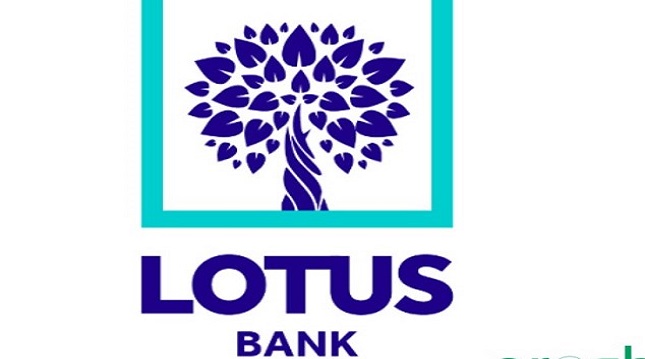News
Researchers Find Drugs in Dam that Supplies Water to FCT

Researchers said that they have found traces of drugs in Usuma Dam, the source of public water supply in the Federal Capital Territory (FCT).

They also listed the effects of these drugs on aquatic organisms to include DNA damage, disruptions to hormonal systems and formation of antibiotic resistant microbial strains.
According to the researchers, the solution to this budding environmental challenge should therefore be a national response..
Constructed about three decades ago, Usuma Dam, is home to four water treatment plants that draw their water from it
In a publication in Conversation– an independent source of news and views from the academic and research community, said that “We found traces of pharmaceuticals in water and sediment of the dam and that is not good for ecological and public health”
The publication was authored by Ifenna Ilechukwu, lecturer of Environmental Chemistry, Madonna University, Nigeria.
The publication read “ Pharmaceuticals – drugs used to prevent or treat human and animal diseases – are essential for health and well-being. But the increasing use of these drugs means that remnants of them are showing up in the aquatic environment.
They are contaminating our waters.
Pharmaceuticals are part of a group of substances known as emerging contaminants. Although they are potentially harmful to human and ecological health, they are yet to be regulated and routinely monitored in the environment.
Most conventional treatment plants typically do not remove emerging pollutants because they were not originally designed for them. These contaminants can enter oceans, rivers, streams, dams and groundwater through waste water and sewage treatment plants, human excretion, landfill leaching, healthcare facilities, pharmaceutical industry effluents and veterinary drug applications.
The contaminants may be transported in water to other places or accumulate in sediments – rocks, sand, soils, decaying materials and vegetation under water – and in creatures that live in water.
Some of the effects of these drugs on aquatic organisms include DNA damage, disruptions to hormonal systems and formation of antibiotic resistant microbial strains.
There have been several studies of pharmaceuticals in aquatic environments across the world but only a few studies in African countries. So in our study, we investigated the occurrence of selected pharmaceuticals in water and sediments of Usuma dam in Abuja, Nigeria’s capital. We also assessed the risk of the harm they could do.
We found traces of pharmaceuticals in water and sediment of the dam and that is not good for ecological and public health.
Sink for pollutants
The dam is an important source of potable water and fish for people living in Abuja. It is also a major receiving water body, so acts as a sink for pollutants from the environs. It is surrounded by large unplanned settlements and is the major drain for household, municipal and agricultural wastes in the area.
Our research investigated the occurrence of selected antibiotics and analgesics (painkillers) in water and sediments of Usuma dam.
We looked for antibiotics in water samples and found amoxicillin, ciprofloxacin and metronidazole. Trimethoprim was found in the sediment samples. These antibiotics are used to treat or prevent bacterial infections. Ibuprofen, detected only in sediments, was the only painkiller detected in the study.
We found that amoxicillin and ibuprofen presented a high risk to aquatic life in the dam. Ciprofloxacin constituted medium risk, while metronidazole constituted low risk.
Pharmaceuticals are designed to exert maximum effects at low concentration. Therefore, any concentration found in water and soil is not good for public and ecological health. If these drugs negatively affect the fishes in the dam through accumulation, they may also affect humans who eat them and drink water from the dam. Any consumption of drugs other than a prescribed dose for a particular ailment is a health risk.
We observed that the chief source of pharmaceuticals in the dam is human excretion. Sewage from unplanned settlements that lack basic sanitation and sewage treatment facilities around the dam is disposed of directly onto the ground and eventually drains into the dam. Other likely sources include improper disposal of medical and veterinary waste.
Going forward
The occurrence of pharmaceuticals in the Usuma dam is not an isolated case in Nigeria. Similar studies have reported the presence of pharmaceuticals in Lagos and Ogun state waters and even in sachet water that many Nigerians drink.
The solution to this budding environmental challenge should therefore be a national response.
In 2019, the Nigerian government signed an executive order to tackle open defecation. This is a step in the right direction and should be implemented. It should also be followed up by providing people with sewage and sanitation facilities.
Healthcare centres and hospitals should ensure efficient management of medical wastes according to existing laws and regulations. The government must also strictly monitor sewage from drug manufacturing plants. Finally, government can do more to monitor contamination of water systems and improve awareness of the issue.
News
Lotus Bank, REA Seal N100bn Deal to Power Rural Nigeria

Lotus bank has strengthened its push for inclusive and sustainable development through a strategic partnership with the Rural Electrification Agency (REA) to widen access to renewable energy solutions in underserved communities nationwide.

The collaboration was formalised on Monday in Abuja with the signing of a Memorandum of Understanding (MoU), under which LOTUS Bank will make available up to N100 billion in accessible financing to certified Renewable Energy Service Companies (RESCOs). The funding is expected to ease capital constraints that have slowed the pace of off-grid electrification projects across rural Nigeria.
Speaking at the signing ceremony, Managing Director/Chief Executive Officer of LOTUS Bank, Dr. Isiaka Ajani-Lawal, described the partnership as a practical demonstration of the Bank’s founding philosophy.
“LOTUS Bank was established to redefine the impact that financial institutions can have on the society we serve – not simply through financing, but through partnership, empowerment, and shared prosperity,” he said.
Ajani-Lawal stressed that the initiative aligns with the Bank’s broader mission of deploying ethical, non-interest finance to address pressing national development priorities.
“Our involvement with REA and the DARES program underscores our commitment to supporting sustainable development goals, while driving financial inclusion across Nigeria. We believe non-interest finance must go beyond innovation — it must deliver tangible socio-economic value to all segments of society,” Ajani-Lawal assured.
On his part, REA Managing Director/Chief Executive Officer, Abba Abubakar Aliyu, underscored the urgency of tackling financing gaps confronting renewable energy developers, particularly in the off-grid segment.
“While Nigeria has made strides in expanding energy access, financing remains a key constraint for RESCOs. Collaborations like this are essential in unlocking private sector investment and delivering sustainable energy solutions at scale,” Aliyu said.
Industry observers note that the partnership is poised to accelerate clean energy deployment, reduce financing bottlenecks, and catalyse private sector participation in Nigeria’s electrification drive.
It also aligns with the country’s National Electrification Strategy and Implementation Plan (NESIP) and advances Sustainable Development Goal 7 (SDG7), which seeks to ensure access to affordable, reliable and clean energy for all.
Since commencing operations in 2021, LOTUS Bank has carved a niche as a non-interest lender focused on financial inclusion. The Bank has rolled out innovative products tailored to individuals, women, youth and micro, small and medium enterprises (MSMEs), while investing in digital platforms to broaden access to ethical banking services across urban and rural communities.
Its interventions span community empowerment initiatives, corporate social responsibility programmes, and financial literacy campaigns designed to deepen understanding and adoption of non-interest banking principles.
In recognition of its expanding footprint in ethical finance, LOTUS Bank was recently named “Best Ethical and Financial Inclusion Bank of the Year” at the 2025 BusinessDay BAFI Awards, further cementing its reputation as a leading advocate of impact-driven banking in Nigeria.
News
DG NITDA Reaffirms FG Commitment to Responsible, Inclusive AI

The Federal Government of Nigeria has reaffirmed its commitment to building a responsible, inclusive, and sovereign artificial intelligence ecosystem to enable Nigeria to transition from being a passive consumer of AI technologies to an architect and builder of indigenous AI systems.

This was said by the Director General of the National Information Technology Development Agency (NITDA), Kashifu Inuwa Abdullahi CCIE, while delivering a virtual address at the InnovateAI Conference held in Lagos.
The conference brought together policymakers, technology leaders, innovators, and stakeholders to discuss the future of artificial intelligence and its role in driving Nigeria’s digital economy and national development agenda.
Inuwa outlined Nigeria’s ambition to transition from being a consumer of artificial intelligence technologies to becoming a builder and owner of AI systems that reflect national values and priorities, in line with the National AI Strategy.
“Our goal is not just to use AI, but to architect and build our own AI systems in Nigeria,” he said, stressing that the country must take ownership of its AI future.
He noted that Nigeria’s approach to artificial intelligence extends beyond innovation to include governance, infrastructure, data sovereignty, and policy evolution.
According to him, “Responsible AI is never a finished job; it is an iterative journey. Our policies must evolve as the technology evolves, and we must avoid frozen laws by adopting living policies that adapt over time.”
He cited the implementation of the Digital Economy and E-Governance Bill as a key mechanism for generating insights that will help refine AI regulations and governance frameworks.
Inuwa also highlighted the challenge of data representation in global AI systems, noting that most models are trained on non-African datasets, which often results in bias against local dialects, cultures, and demographics.
“If a model shows bias against a local dialect or demographic, we cannot just patch it. We must reinvest in infrastructure to retrain it with inclusive and representative local datasets,” he stated.
He added that building national AI infrastructure is critical to achieving data sovereignty and ensuring that Nigeria is not merely an end user of foreign AI systems.
He further called for strategic partnerships with global technology companies and hyperscalers to build AI infrastructure in Nigeria while aligning with local values and national priorities.
“The world today is a global village. We need to work with global players, but they must understand our local nuances and help us build the infrastructure to retrain and develop AI models that reflect our context,” he said.
The NITDA Director General explained that adopting a comprehensive AI lifecycle approach, from responsible data collection and governance to deployment and continuous feedback, will enable Nigeria to move from reacting to AI developments to proactively designing indigenous AI systems.
“Without understanding how AI models are trained, how decisions are made, and how models are retrained, it will be difficult to build a responsible and trustworthy AI system,” he warned.
He reaffirmed that the Federal Government is intentional about promoting responsible AI and is working closely with the technology ecosystem to co-design national AI guardrails. He described platforms such as the InnovateAI Conference and other national AI dialogues as critical to shaping Nigeria’s AI future.
News
Obasanjo, Vanguard’s Amuka Lead Prayers for Zinox Chief Leo Stan Ekeh @70

African statesman and former Nigeria President, Chief Olusegun Obasanjo, on Sunday night, joined several distinguished Nigerians including Mr Sam Amuka, media icon and Publisher of Vanguard newspaper, to pray for Leo Stan Ekeh, Chairman of Zinox Group, on his 70th birthday.

R-L President Olusegun Obasanjo, his wife Chief Mrs Bola Obasanjo and Mr. Leo Stan Ekeh at the event
Obasanjo who graced the thanksgiving meeting with his wife among other dignitaries prayed for more years on earth for Ekeh, whom he described as an “achiever and a very kind man who deserves to be celebrated.” The meeting which held in Ekeh’s residence was organised by his wife and children with opening prayer said by Reverend Father Francis Ike, of the Church of Assumption Falomo, Ikoyi.
Obasanjo who was President of Nigeria from 1999 to 2007 described Ekeh as “one of the people who made it possible for people to say the good things they say about me and about my period in government.”
President Obasanjo who never hid his admiration and love for Ekeh showered praises on the tech billionaire for taking advantage of the opportunities he created during his eight years as President.
He said: “Leo Stan Ekeh is a very kind man, an achiever. People have been celebrating you but I particularly have to celebrate you because of what you mean to me. Wherever I go in Nigeria and outside Nigeria, people say to me, you did this and that especially in enhancing both local and foreign investments. An African President, five months ago, even invited me to his country to show him how I was able to create many billionaires in Nigeria during my tenure.
“I celebrate Leo Stan because it is one thing to create an opportunity, it is another thing to find people who will even see that as opportunity and take advantage of it and achieve success with those opportunities. Leo Stan is one of the people who made it possible for people to say the good things they say about me and about my period in government.
“That’s why I have to join your family and every other person in identifying those qualities in you that made you a great achiever that you have been. The lesson for all of us is that in spite of the hardship, there are still opportunities. The challenge is how to identify those opportunities and take advantage of them and individually and collectively turn our poverty into prosperity just as Leo Stan has done.”
Obasanjo while thanking God for the gift of long life told Ekeh: “Today, you are celebrating 70 and I am here with you at your invitation. You will celebrate 80, whether you invite me or not, I will be there. You will celebrate 90, you will celebrate 100 and I don’t pray to be there,” he said wittily, eliciting laughter from guests.
Aside Obasanjo and Amuka, others who joined in honouring Ekeh were former Lagos state governor, Babatunde Raji Fashola and his wife, former INEC Chairman, Professor Maurice Iwu and his wife, Chairman of MTN, Dr. Ernest Ndukwe and his wife; Mr. Atedo Peterside, Founder of Stanbic IBTC Bank and his wife; Chairman of Fidelity Bank, Mrs Amaka Onwughalu; Managing Director Fidelity Bank, Dr. Nneka Onyeali-Ikpe; Mr. Udoma Udo-Udoma, Chairman Seplat Energy and his wife; secondary school mates of Ekeh including Charles Oputa (Charly Boy) who came with his wife; Leo Stan’s elder brother HRM Eze George Ekeh (aka Saint George), the traditional ruler Ishi Ubomiri Autonomous Community in Imo state who performed the traditional rites to usher Leo Stan into the traditional club of Elders of Ubomiri; representatives of multinationals with whom he has partnered all through the years; among other distinguished Nigerians and foreigners.
Ekeh in his response thanked Obasanjo for adopting him as his son and trusting him. He attributed his success to the prayers and blessings of Obasanjo, describing him as the President who made most of the billionaires in Nigeria.
The Zinox boss who recalled his little beginning as a mass servant and chorister, said he chose his path early in life, refusing to drink alcohol and smoke cigarette, and keeping to it till this day.
“I am a promoter of trust economy and I believe that trust must define everything you do if you want to succeed,” he said.
He recalled how he woke his parents one night to tell them he was going to start a tech business which sounded strange to them because technology was non-existent in his state at that time.
He acknowledged the role of his wife in his life. “My wife is my strength. I was very clear I was going to marry an intelligent woman. My wife ticked all the boxes for me,” he told the audience.
“I started my business with my school fees and I have been able to build myself and my companies as collateral. People trust me and trust my companies because I was intentional about building trust and integrity in all we do,” he said.

 General News3 days ago
General News3 days agoZinox Technologies and TD Africa Forge Strategic Partnership to Revolutionize African Tech Ecosystem

 Telecom3 days ago
Telecom3 days agoUwaje Pays Tribute to Leo Stan Ekeh @70

 Telecom2 days ago
Telecom2 days agoCyber Immunity Emerges as Shield for Nigerians Amid Rising Scams

 E-Financial2 days ago
E-Financial2 days ago$214Bn Missing, Institutions Silent: Is Accountability Dead in Nigeria?

 General News2 days ago
General News2 days agoNITDA, Abia Partner on Enterprise Architecture Reform

 E-Business2 days ago
E-Business2 days agoInterswitch Partners Abia to Digitise Public Hospitals

 E-Business2 days ago
E-Business2 days agoWIEG 2026 Summit Shifts to April 22-23 for Maximum Impact

 News1 day ago
News1 day agoNITDA Urges Stronger State Partnerships as Key to Digital Economy Goals @ South-South Stakeholders Forum














